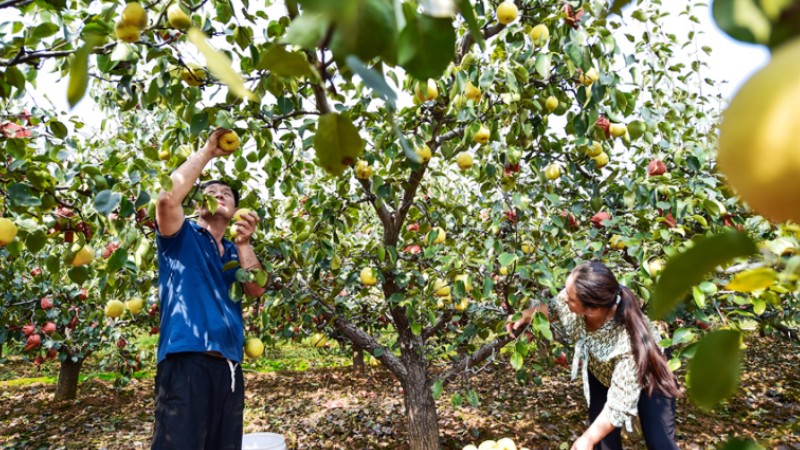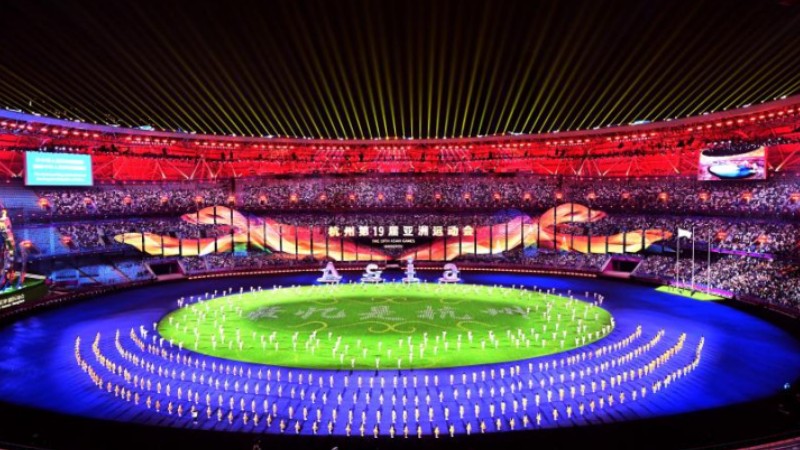Interview: Djordjevic gives hopes for China's basketball future
BEIJING, Oct. 12 (Xinhua) -- China's men's basketball national team head coach Aleksandar Djordjevic asked a lot of questions, most importantly, "why not" in an exclusive interview with Xinhua after his side's frustrating results in two major events this year.
Following a disappointing 29th finish at the FIBA World Cup in Manila to fail to qualify for the Paris 2024 Olympic Games, China received another hard strike in Hangzhou, as their plan of defending the Asian Games championship was pitilessly smashed by Filipino naturalized player Justin Brownlee's buzzer-beater in the tournament semifinal.
The country's basketball association president Yao Ming stepped out to take full responsibility and accept all possible outcomes but refused to talk about the detailed changing plans, only purposed a "big surgery" on the system, while the Serbian legend Djordjevic's suggestions might help a bit.
The 56-year-old former Serbia 2013-2019 national team coach took over the pointer in China, starting his new career in the bubble during the COVID-19 pandemic to select Chinese talents and get himself familiarized with the CBA league. And yet he suggested the biggest change that China should make is changing 48 minutes to 40 in the domestic league.
"What we are talking about, the FIBA basketball, 40-minute game, it's completely different from 48 minutes. That's the thing I would suggest for anyone to consider changing as soon as possible in China's basketball." Djordjevic told Xinhua, "Why? Because we want to gain great results in 40 minutes, not 48."
Djordjevic quoted Team USA's head coach Steve Kerr's speech this summer to back up his suggestion, "In 48 minutes, you can go down by 20 but you can recover, in 40 minutes people probably don't have the time."
"The habits, physical power, mentality and personality that are gained and learned by the players throughout the year playing one kind of the game can't be all just like that changed into another game," Djordjevic noted, said one player came to him to ask for a 20-second timeout without acknowledging it was a non-existing thing in FIBA.
The coach also addressed the issue of refereeing in the CBA league as he found the Chinese referees were derailed from the FIBA guidebook. Djordjevic said that the coaching crew had to spend a month in the summer training camp in Slovenia to teach his players the FIBA rules.
"We had one meeting when I showed the video of the game against Croatia, to explain to my players how many times Croatian players sold to the referees." Djordjevic recalled, "I asked my players' opinion on a screen foul, and captain Zhou Peng told me that such a foul won't be called in CBA."
Djordjevic further explained the Chinese players' non-adaptation to the FIBA rules, that Chinese player Hu Jinqiu's offensive fouls in the group match playing against Serbia in the World Cup were all attributed to his hip turned up. In Djordjevic's opinion, all of those could have been avoided if the CBA had better referees.
Missing out on the chance to go to Paris, China now is putting its sights on Los Angeles 2028, while the pathway may not that unimpeded. A squad with a relatively young average age of 25 at the Asiad may be used as an excuse for China, compared to champion the Philippines' 32, but it's hard to ignore the fact that Qatar was dispatching two U16 players, Mohamed Ndao and Abdulla Mousa. It's obvious that there is a big question mark whether 27-year-old Zhao Rui and 28-year-old Zhao Jiwei can stay around till 2028, and one can say that Chinese basketball lacks young power that can fill in quickly.
Having a mindset of changing the players' habits from young, Djordjevic thought CBA should abort its 18-and-older age limitation to get more young talents early access to professional basketball. The Yugoslav point guard mentioned that he and some big names like Toni Kukoc and Vlade Divac, who teamed up for 1987's FIBA U19 Championship all started their professional league games as early as 16 years old.
Since CBA had its new season press conference on Thursday, changing the age entry is impossible, while Djordjevic seemed more concerned about the league's internationalization, which corresponded to Yao's core idea.
"Why not internationalize the league? If there's no chance for frequent club-level exchanges like in Europe, China can internationalize its own league. Why not introduce international players, enhance competition, increase diversity, and give Chinese players more opportunities to compete with international players? If we observe the CBA league, we'll find that each team has several players who rarely get to play, so it's not just a matter of foreign players taking away opportunities from Chinese players," Djordjevic stated.
In an early interview with Xinhua, Yao revealed that Djordjevic's contract is ending by the end of the year if he "remembered correctly." Certainly, the Serbian coach's philosophies were doubted a lot by Chinese fans, and one thing in particular, why keep center Hu Jinqiu on the bench in the first place at the World Cup?
"We had prepared something with the players who were practicing inside the system in front of him, starting center Zhou Qi was the main guy that we created games around. Sometimes coach sticks with the philosophy, not always you make mistakes and not always you make good decisions. It's easy to say just like that 'Why don't you put this guy, he will resolve the problem.' It's not how it goes, because it's a long planning period, the game is just the end of a process that is trying to get you to win again," Djordjevic, who was called "stubborn" on Chinese social media, defended his coaching decision again.
Even though he had an unclear future with Team China, Djordjevic confirmed that he would stay passionate as long as he was still with Chinese basketball. "I'm always open to Chinese coaches if they want to talk to me," Djordjevic said.
Photos
Related Stories
- Interview: CBA president Yao Ming vows to take responsibility after "failing" at home Asiad
- Philippines take gold, China settle for bronze in Asiad men's basketball
- 19th Asian Games: Men's Preliminary Round matches of Basketball
- Feature: Malaysian basketballer's China college ambition
- China wins 2nd straight in men's, kicks off women's competition in style in 3x3 basketball
Copyright © 2023 People's Daily Online. All Rights Reserved.









